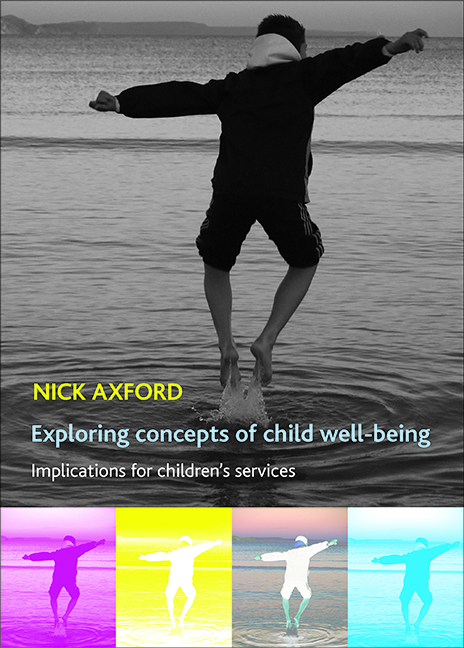Summary
The dataset
Since practical constraints meant that it was not possible to collect primary data of the nature and volume required, an existing source was sought instead. A range of options were assessed against five considerations. First, the dataset needed to have children as the unit of analysis, with information relating to them directly. Second, it was considered desirable to have information on children of all ages, that is 0-17 years (in line with the England and Wales 1989 Children Act). Third, data were sought that pertain to a cross-section of children living in the community, since this would provide insights into the extent of and relationship between the conditions in society. Fourth, it was evident that examining children living in a discrete neighbourhood would have significant merits (particularly for measuring QoL and social exclusion). Fifth, there should be data on risk and protective factors in all areas of the child's life, and also some evidence of contact with and use of services (the latter is valuable for judging the violation of a child's rights).
In light of these criteria it was decided not to use datasets that:
• are based on households or that assign children the classification given to the
reference person;
• focus on a subset of children in specified school years, or draw the divide
between children and adults at 15/16 years, or track a cohort of children born
in a particular week;
• only include children in contact with service agencies;
• are restricted to a national picture; or
• focus exclusively on either child development (thereby omitting information
on interventions) or process (most such studies are weak on child
development).
Instead, it was decided to reanalyse data from phase one of Children Supported and Unsupported in the Community – a study funded by the UK Department of Health and conducted by Dartington Social Research Unit (Axford et al, 2003). This was an exploratory study aimed at providing evidence on the nature of need among children in the community, the extent to which they and their families use children's services and how these agencies, together with coping strategies, affect children's development. An added advantage of this source was that the author was joint lead researcher on the study and therefore very familiar with the data from having been closely involved in all stages of the work.
- Type
- Chapter
- Information
- Exploring Concepts of Child Well-beingImplications for Children's Services, pp. 185 - 208Publisher: Bristol University PressPrint publication year: 2008



